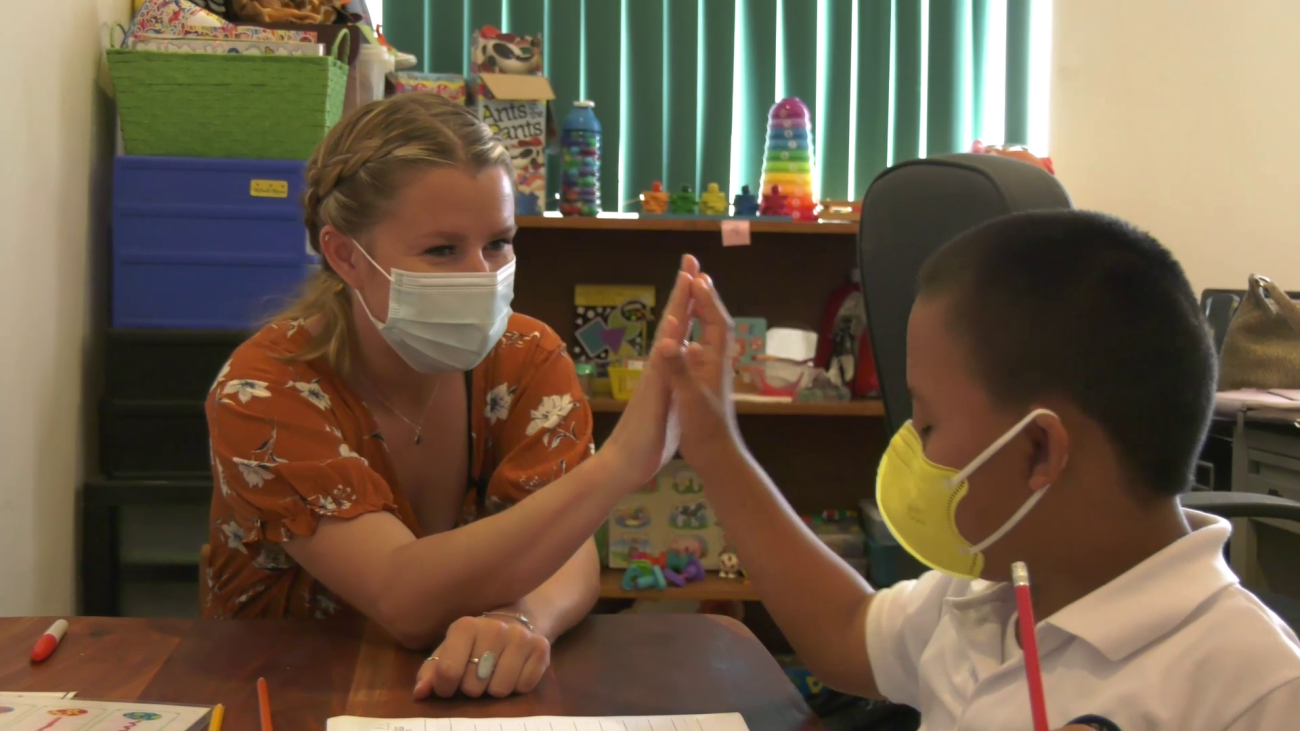Investigating the Need for Inclusive Infrastructure for Children with Disabilities
As natural disasters become increasingly frequent and severe, the need for inclusive infrastructure in emergency shelters has never been more urgent. In Belize, where the threat of hurricanes and other disasters looms year-round, a significant gap exists in the country’s ability to provide safe, accessible refuge for its most vulnerable populations—particularly children with disabilities. Despite the government’s efforts to prepare over 400 shelters nationwide, many are still ill-equipped to meet the needs of individuals with disabilities. The following investigative piece delves into the critical shortcomings of shelter infrastructure, the ongoing challenges faced by children with disabilities during evacuations, and the steps being taken—or overlooked—in ensuring their safety and well-being during times of crisis. Hipolito Novelo reports.
Hipolito Novelo reporting
As natural disasters intensify, so does the urgency to ensure that every Belizean is able to seek refuge during times of crisis. But for children with disabilities, Belize’s emergency shelters remain dangerously inadequate. The pressing need for inclusive infrastructure in these shelters has never been more apparent, especially as the threat of hurricanes and other natural disasters looms year-round.
In Belize, over 400 shelters have been designated for use during emergencies. Yet, many are still not equipped to accommodate individuals with disabilities. Schools, churches, and public buildings are often used as shelters, but their multi-purpose nature makes them ill-suited for disaster relief. For instance, bathroom facilities and accessibility features are insufficient, and the needs of children with disabilities remain overlooked. According to Daniel Mendez, the National Emergency Coordinator at the National Emergency Management Organization (NEMO), two shelters have been identified as fully accessible to individuals with disabilities in Belize City: The Inspiration Center and the Education Building.
Daniel Mendez, National Emergency Coordinator, NEMO
“It’s important for us to look at the needs of children in disaster situations. Children and persons with disabilities are some of the most vulnerable persons. It is important for us to look at them in particular, because we know across the world children are the ones most impacted by disasters. We do have a committee that looks at the needs of persons with disabilities. And that committee is the one that manages, knows where these populations are, and reaches out to those persons. So there is a special plan for those persons if there’s a need for evacuation. And we do have people who look after that issue. So it’s one that is an area that we will continue. We know that needs to be expanded and strengthened, and we will be; we will continue to do that in the future.”
In 2023, Belize signed the Protocol for the Protection of Children and Adolescents in Emergencies and Disaster Situations, which focuses on ensuring integrated protection for children through a multi-sectoral approach during disasters. This minimises the impacts on their living conditions. It serves as a guide for government agencies, civil society, the private sector, and international organisations in the stages of prevention, preparation, response, and recovery.
Daniel Mendez
“That is an area that will continue to be rolled out. There’s a specific plan for it. And we continue to work with our partner UNICEF to ensure that the children are considered under the plan that is reflected in all of our operational plan. So it’s an area that is being integrated into all our operational plans across the country.”
The Inspiration Center provides a range of services for children with disabilities. It is one of the shelters designated for individuals with disabilities. Executive Director Joycelyn Lopez says that while there has been progress, including setting up shelters for disaster preparedness, there is still much work to be done.
Lopez says that the increasing population of children with disabilities has led to a growing demand for services at the Inspiration Center.
Joycelyn Lopez, Executive Director, Inspiration Center
“The population is a growing population. Children, more children are being born with disabilities or diagnoses that contribute to these disabilities. And elderly people as well who suffer from disabilities. The population is a growing population. The population that we serve is a huge population. And Belize lacks allied health professionals. So, because Belize lacks allied health professionals, most of our children come to us.”
Evan Cowo is the Community-Based Rehabilitation Manager at the Inspiration Center and is part of CEMO’s Special Needs Disaster Response Team. He has witnessed firsthand the challenges and risks posed by inadequate facilities for children with disabilities in times of disasters. He says that accessibility for individuals with mobility issues goes beyond ramps for wheelchairs. He stressed the need for wide doors and accessible bathrooms for those with special needs. He also noted the importance of always having a medical doctor present, adequate transportation, a hot plate of food, and beds.
Evan Cowo, Community-Based Rehabilitation Manager, Inspiration Center
“You can’t bring somebody who has a disability and just let them sit on the floor; you know, you need beds, and some of these people that come, sometimes they have bed sores and you have other complications that they, you know, they, they really need to be in a, in a bed. Through my experience, the first thing that. Parents would leave the children with disabilities as a last, the planning would be last for, for children with disabilities, when it should be, it should be the first, you know, the first. And like I said, some, some children would come with different, um, health issues that we, we need to address.”
While there has been progress in some areas, concerns persist about the slow implementation of laws designed to protect individuals with disabilities, especially children. The Disability Bill, which was ratified years ago, was just recently enacted, frustrating advocates like the late Kenrick Theus, who was the president of the Belize Assembly for Persons with Diverse Abilities when we spoke with him a few days before his passing.
Kenrick Theus, Former President, BAPDA
“In the end, until the whole thing has been vetted out and all the arms of it and the legs and the feet and the office and the computers and a person in charge and just like what you have with the AIDS commission, they have a full office and a secretariat. They’re functioning, they’re working. Disability doesn’t have that in place. I don’t know how long it would take to get that all in place, but until if it takes him until the 4th of December, that’s when, if it takes another six months, that’s when too. So, I, I would venture to say it wouldn’t take six years because we will be making enough noise beyond that, yeah, well, that’s the next thing. You can make all noise you want. That is, as if they want to listen. It’s taken too damn long. It’s taken, if they’re serious about this, upon that assent, everybody who is supposed to be appointed wouldn’t have been appointed already. You cannot have buildings being built in 2024 that you say, well, you need to go to the building authority. The building authority know damn well that this thing have to have a ramp, but it’s not in place. So now when I get there now, I’m excluded because I can’t access the building. So this is a commercial building. You want to carry on business here, but yet I don’t have access. That shouldn’t happen in 2020, not in Belize.”
Reporting for News Five, I am Hipolito Novelo.







Facebook Comments